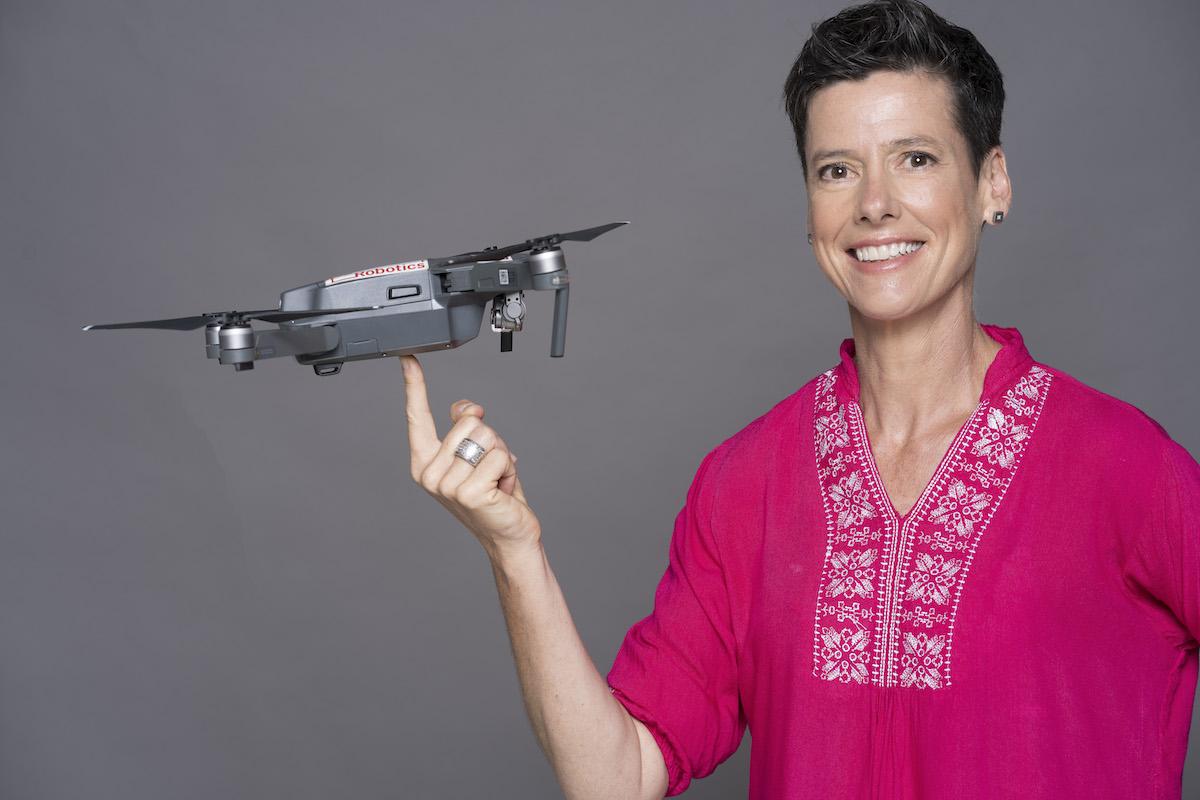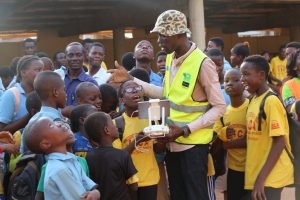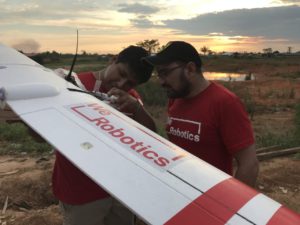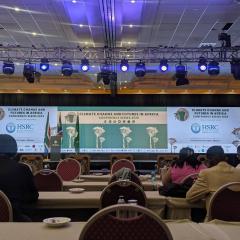
Interview with Sonja Betschart: "Democratize Technologies"
January 14th, 2020

This post originally appeared on WHERENEXT.
New technologies do not improve the world per se—even if one or the other from Silicon Valley likes to say so. In addition to supposedly "powerful" technologies, much more is needed—especially if they are also to benefit the global south.
Technology alone does not bring a step forward. No one knows that better than tech entrepreneur Sonja Betschart. She is committed to the democratization of high-tech solutions, is one of the 100 most influential Swiss 'digital shapers,' is a co-founder of WeRobotics, and is on the plenary stage of the Esri Conference 2020.
WOLFGANG: Sonja, you call yourself a 'Tech for Good Entrepreneur'—can you briefly describe to our readers what that means exactly?
SONJA: For me, the term combines three things: people, technologies, and entrepreneurship. It is a matter of shifting the focus from technology to real added value generation. In other words: the aim is to find new solutions for social challenges and to establish these solutions locally. Wherever they are needed—and particularly in countries of the Global South—the necessary conditions must be fostered.
What do you think is important for the responsible use of technologies?
Two things are essential for the responsible use of technology: equal access and meaningful use of technology.
When accessing technologies, solutions must be available to the broad public. This includes not only access to the technology itself but also the knowledge of how to best use it. Ideally, both should be available to everyone. Unfortunately, this is not always the case. For some continents and countries, access to the most appropriate technologies and infrastructures is still a privilege.
A meaningful application of technologies primarily means creating added value for the end-user. Ethical aspects should also play a role here. One example is our Drone Code of Conduct for Social Good or the Principles of Digital Development initiative.

What has to change so that access to technology is no longer a privilege?
Technology needs to be democratized. In addition to access, factors such as design, opportunity transfer, and education are essential for this.
Can you explain that in more detail? Is most technology 'ethnocentric?'
Design is about the development of comprehensive technology solutions: The requirements vary from continent to continent. There are individual challenges such as bandwidth, network connection, available hardware, and repair options. Drones, software, platforms—all technologies that we use today are developed exclusively in the Global North—and are therefore geared mainly towards the needs, structures, and infrastructures of the Global North.
Also, access to technology and education go hand-in-hand because those who do not have access cannot receive that education. Technology companies focus their training programs on their main sales markets. Smaller, fragmented markets—often including those in the Global South—are less noticed. To democratize technology, however, local training is the be-all and end-all. The requirements that I've mentioned must also be considered, such as bandwidth in online training and webinars, for example.
"Technology has to be democratized. Factors such as design, opportunity transfer, and education are essential for this."
The third aspect is to empower local experts. They need access to technology and knowledge, as well as the possibility of local leadership. This creates added value locally on several levels. At WeRobotics, we observe that many activities and projects are still led by foreign experts who often lack cultural experience in the areas in which they use technology. Sometimes that does more harm than good—especially when working with drones and AI. Incidentally, empowering local experts enables not only more efficient and customized solutions but also creates new jobs on site. No wonder that we rely on knowledge in the Global North; it's how one creates value. Our goal is to apply the same logic to the Global South.
What can companies contribute to tech democratization—in the sense of the next generations?
In addition to the aspects just mentioned, companies and organizations can consider the following tips:
- Keyword 'value-oriented thinking': the focus should be less on technology than on the added value of a solution. Here it helps to ask: What value can technology create and, above all, for whom?
- 'Ecosystem Approach' and 'Open Sharing Mentality': We don't always have to do everything on our own and should open up for more collaboration and exchange. It benefits everyone.
- Keep it simple: A simple language and clear examples help to make knowledge and learning accessible to a broad audience. You cannot overestimate the value of simplification.
What are you currently working on? Can you tell our readers about your current projects?
We are currently organizing the final pitch event of our solution competition, Unusual Solutions, which will take place in Nairobi. The competition addresses some of the challenges that I have already mentioned, including solutions for the last data mile, customized AI tools, and consideration of ethical aspects.
Before arriving in Nairobi, I'll be in Panama, where we are starting our next "Drones as a Service" business incubation program. The program enables young (and sometimes not so young) engineers to acquire the needed business and entrepreneurial expertise so that they can set up their own service company. I previously had a lot of fun with this program in Nepal and Tanzania.
Last but not least, I am also preparing one of our main topics for the coming year. The focus is on the question: How can we turn (drone) data into action and sustainably strengthen local markets? While the focus of WeRobotics' first two years was mainly on drones, and last year primarily on data and AI, a large part of our small but experienced team will now pursue the question of how data and insights create sustainable added value in practice.
In which countries are you active?
The Flying Labs network today comprises 26 Flying Labs, which extend from Papua New Guinea to Chile and from Nepal to Zambia. Another country joins approximately every month. Africa has the highest number of Flying Labs, followed by Latin America, Asia, and the Pacific.

You are a plenary speaker at the Esri Conference 2020: Why shouldn't one miss your keynote?
I bring sunshine with me! While Bonn can be gray and still cold in winter at the beginning of March, my keynote will be full of color and tropical heat—with plenty of innovative examples of sustainable technology use in my luggage.
In my keynote, I take up the conference motto "See what others can't"—from a slightly different perspective. Because: What happens when we take a step back and ask ourselves what it means for certain societies to live in a world in which the daily tagline reads: "See what we can't, and have never seen before?"
Learn everything about intelligent technologies with spatial reference at the Esri Conference 2020. Find out more and register now.
Recent Articles

